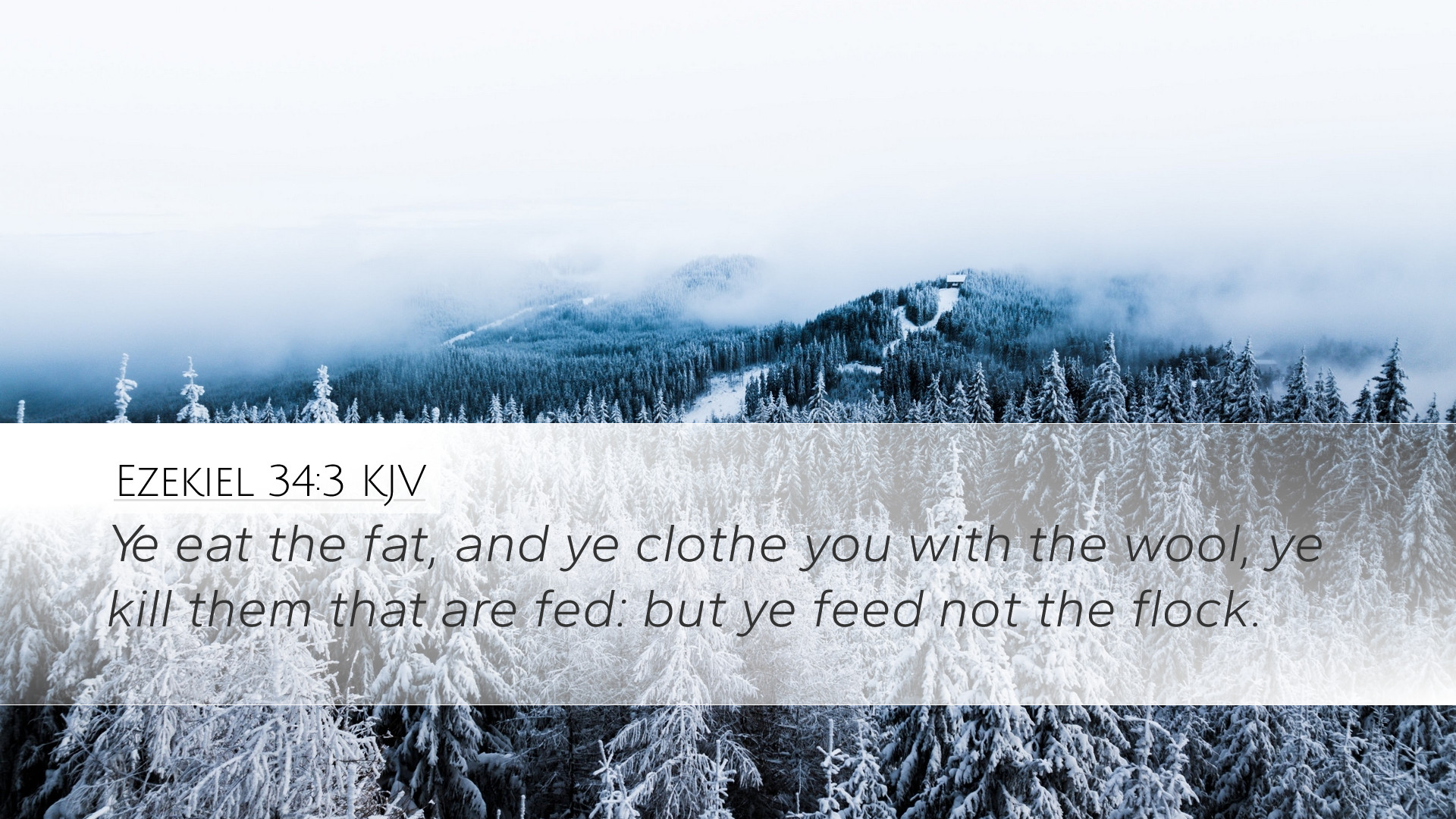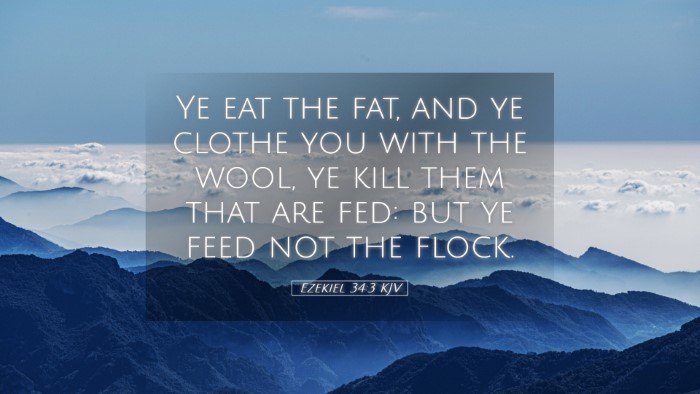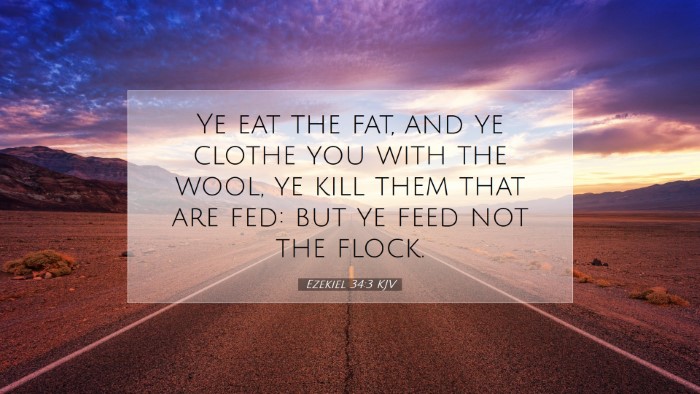Bible Commentary on Ezekiel 34:3
Bible Verse: Ezekiel 34:3 - "Ye eat the fat, and ye clothe you with the wool, ye kill them that are fed: but ye feed not the flock."
Introduction
The role of shepherds is critical throughout the Bible, symbolizing care, guidance, and responsibility. In Ezekiel 34:3, the prophet uncovers spiritual negligence, particularly addressing the leaders of Israel who fail to nurture their flock. This commentary aims to elucidate the significance of this verse by drawing insights from prominent public domain commentaries including those by Matthew Henry, Albert Barnes, and Adam Clarke.
Contextual Background
Ezekiel's prophetic messages arise during the Babylonian exile, a period marked by disillusionment for the people of Israel. The shepherd metaphor is prevalent, representing leaders—both spiritual and political—who are charged with the care of their people. Ezekiel's vivid imagery serves as an indictment of these leaders who prioritize their own comfort over their duty to guide and protect their charges.
Commentary Insights
Matthew Henry's Commentary
Matthew Henry emphasizes the selfishness of the leaders, who consume the best resources meant for the flock while neglecting the very flock they are tasked to care for. He critiques the leaders for:
- Eating the Fat: This signifies the leaders' indulgence in prosperity gained through the neglect of their duties.
- Clothing Themselves with Wool: Henry notes that this represents the leaders’ vanity, using the resources that should benefit the needy.
- Killing the Fed: The metaphor represents betrayal, as those who should protect and nurture end up destroying the well-being of their people.
Albert Barnes' Commentary
Albert Barnes reflects on the contrast between the shepherd’s duties and the actions of Israel's leaders. He articulates the following points:
- Neglect of the Flock: Barnes remarks that true shepherds must ensure that the flock is nourished, both spiritually and physically. The failure to do so leads to disarray and suffering within the community.
- Pride and Greed: The leaders’ behavior illustrates a disconnect where their focus is upon personal gain rather than the welfare of the people they serve.
- Divine Judgment: He highlights that God sees these injustices and will hold the leaders accountable, which reinforces the theme of accountability in leadership.
Adam Clarke's Commentary
Adam Clarke provides a theological reflection on the implications of this verse. He notes:
- Accountability to God: Clarke underscores that shepherds are ultimately accountable to God for their actions and inactions regarding their flocks.
- The Nature of True Leadership: He discusses how genuine leaders are called to be servants, prioritizing the needs of others above their own desires.
- Reflection on Modern Leadership: Clarke suggests that the lessons from this passage remain relevant for contemporary church leaders and spiritual authorities today.
Theological Implications
The implications of Ezekiel 34:3 resonate deeply within theological study, particularly concerning the nature of leadership in spiritual contexts. The failure of leaders to feed the flock can be paralleled with neglect found in modern ecclesial settings. This passage serves as a reminder of the divine expectation for leaders to nurture, protect, and guide those entrusted to their care.
The shepherding image extends beyond physical nourishment to spiritual sustenance—addressing the necessity of doctrinal teaching, pastoral care, and community support.
Application for Pastors and Theologians
This chapter acts as a caution and a call to action for pastors and theologians. Here are some reflections on how to apply insights from this verse:
- Self-Examination: Leaders should regularly evaluate their priorities and ensure they place the welfare of their congregation above personal gain.
- Accountability Structures: Establishing strong accountability mechanisms within church leadership to maintain integrity in their roles.
- Focus on Service: Promote a model of servanthood that reminds leaders of their call to serve rather than dominate.
- Teach and Train: Invest in teaching resources that equip leaders to nourish their flocks through sound doctrine and pastoral care.
Conclusion
Ezekiel 34:3 provides a powerful admonition against spiritual negligence. With the insights drawn from the commentaries of Matthew Henry, Albert Barnes, and Adam Clarke, it becomes evident that the call for leaders is not just a historical lesson but a timeless charge to love, feed, and care for their flocks. Understanding the depth of this verse allows pastors, theologians, and students of the Bible to embrace their roles as shepherds with humility and dedication.


